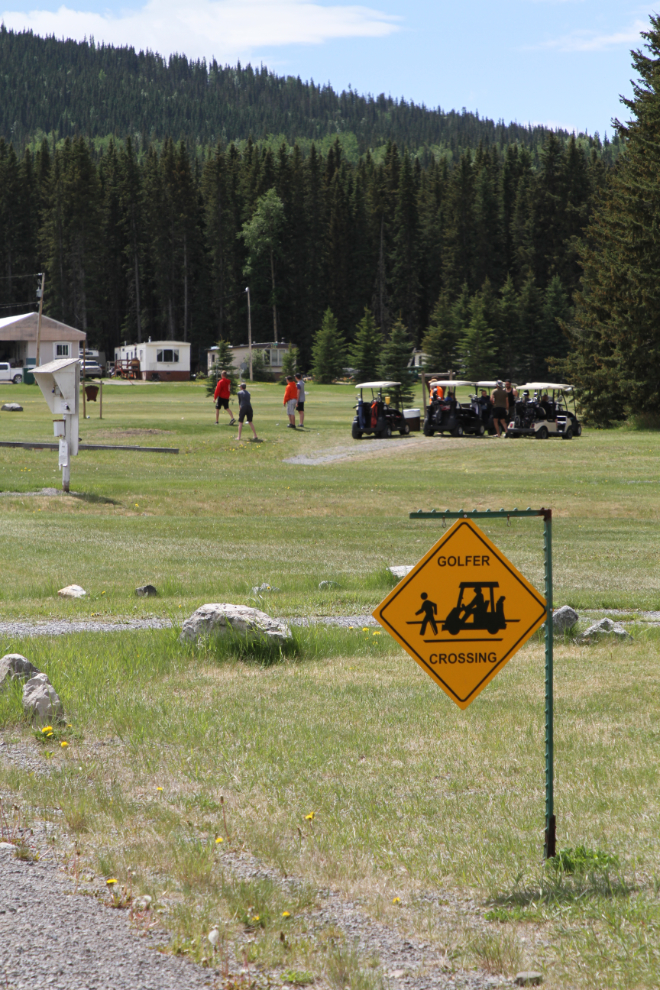Exploring Nordegg, and the Brazeau Collieries Upper Mine Tour
I did a two-part visit to the historic coal-mining town of Nordegg. The first was a quick look on Day 44 of the trip – Friday, June 8th – then I returned the next day to do the Upper Mine Tour at the Brazeau Collieries.
I had my first look at Nordegg last December, and knew that I had to get back. This pair of visits has only whetted my appetite to see a lot more, as I know I’ve only scratched the surface, a quite accurate term to use in a mining town
It was German entrepreneur Martin Nordegg who started mining coal here 1911, after hearing about the deposits three years earlier. In August 1914 when the Canadian Northern Western Railway reached it, the town that grew up around the mine was named Nordegg. Mr. Nordegg had actually applied for and received a Dominion Charter to build the line himself as the Alberta and Brazeau River Railway Company, but that didn’t happen.
As I did last time, I began my look at Nordegg at the upper end of town. This brick building, originally the Bighorn Trading Post, is currently being renovated according to my friends in the Alberta’s Abandoned History group at Facebook.
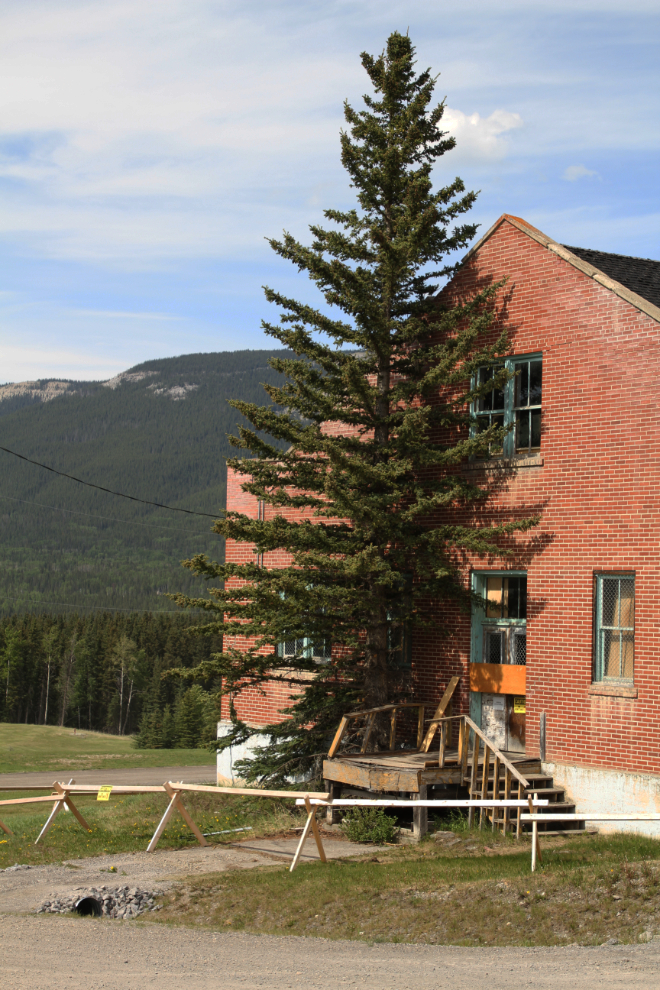
The church is now just called the Nordegg Community Church. Some sources call it a historic building while others hint that it is a reproduction built after the original Protestant church burned down in 1975. Services were re-started in 2003 by CSSM Ministries, now called One Hope Canada.
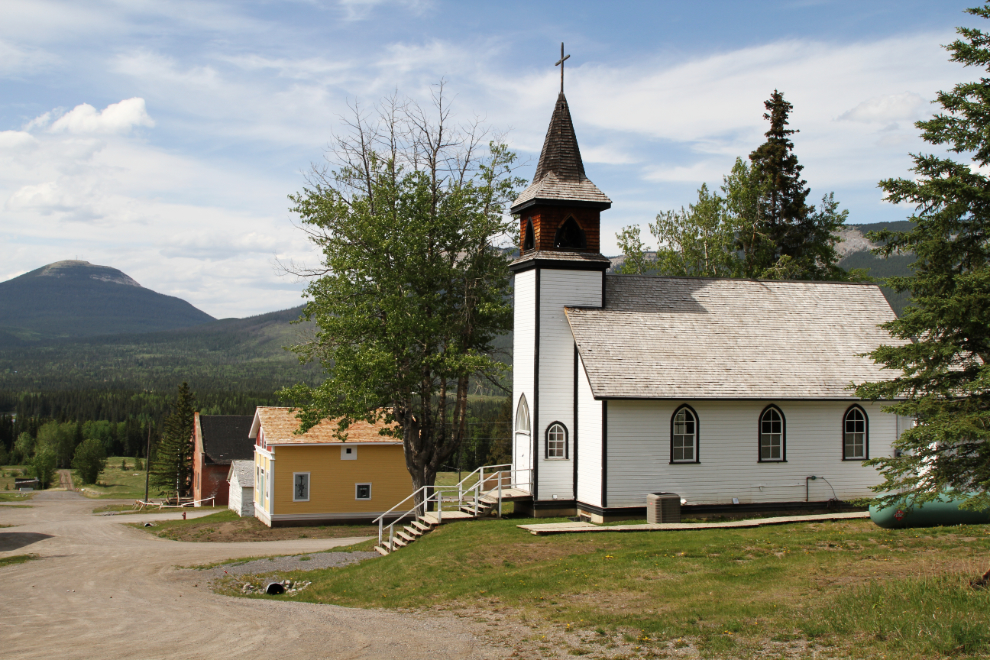
On a bench above the church, I discovered a rail yard with 4, perhaps 5 sets of tracks. The railway history of Nordegg appears to be quite interesting in its own right, though I haven’t found a good compilation or summary of it yet.
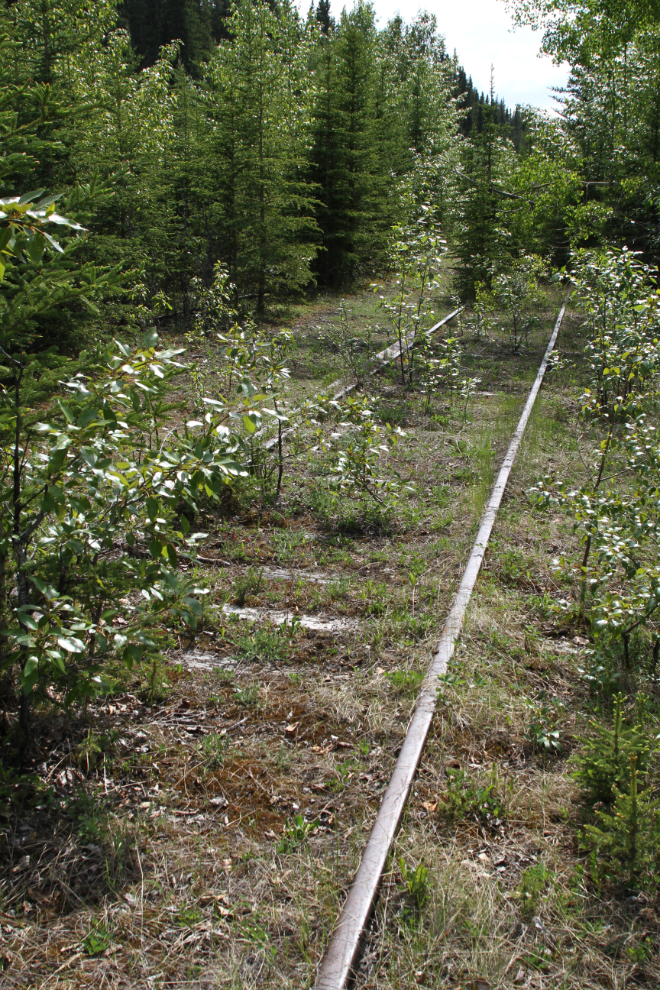
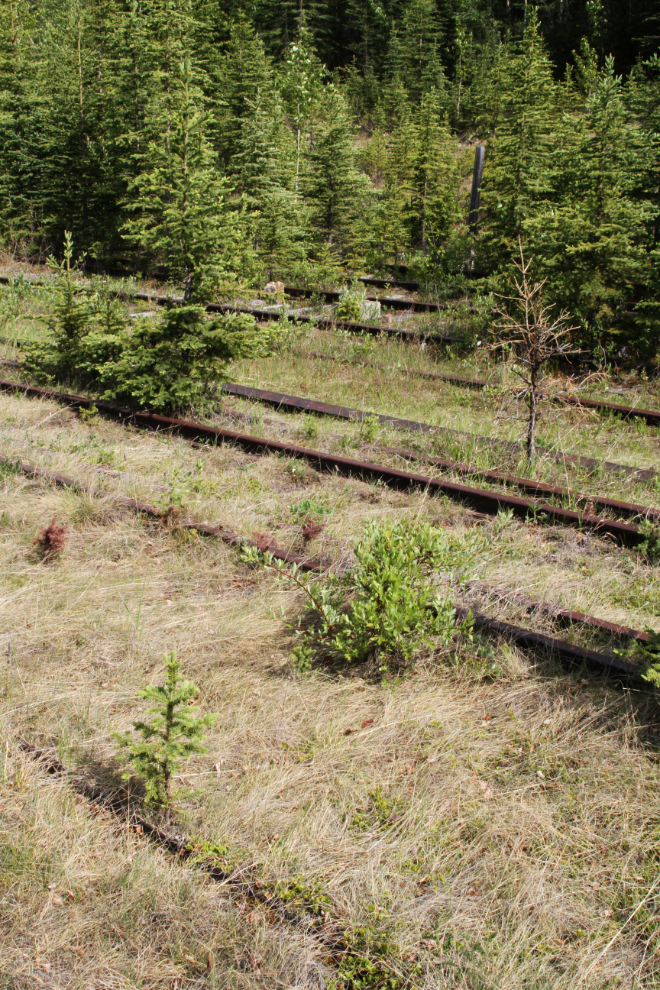
Beyond fascinating history, Nordegg has great recreational opportunities. This road is the access to the East Bush Trail, the Brazeau Ridge Trails, and the Rail Trail.
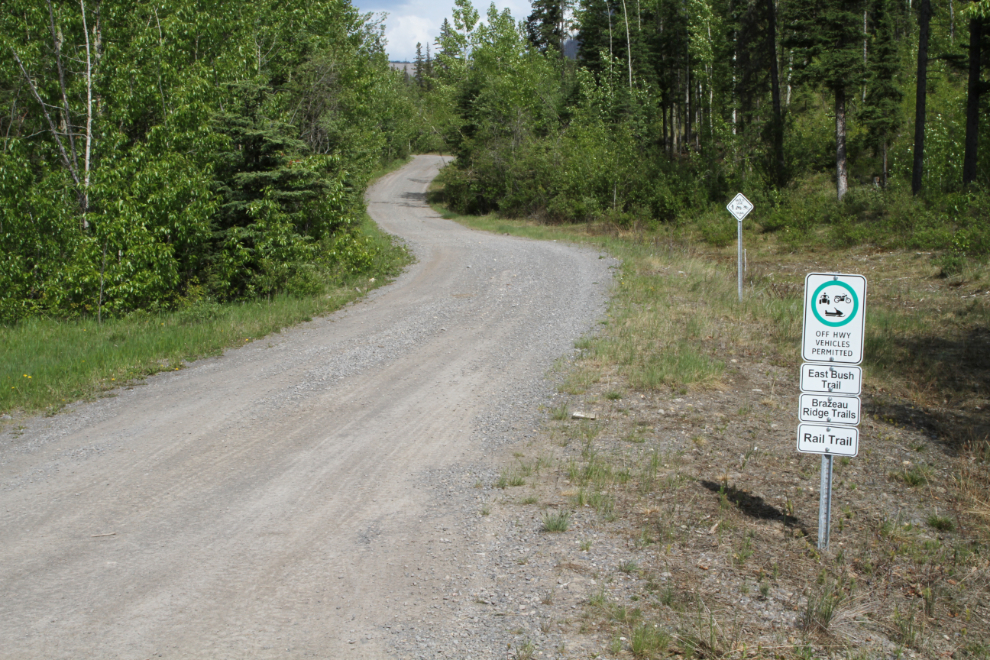
After years of being threatened with demolition the brick Shanks Garage has now been saved and is earmarked for restoration.
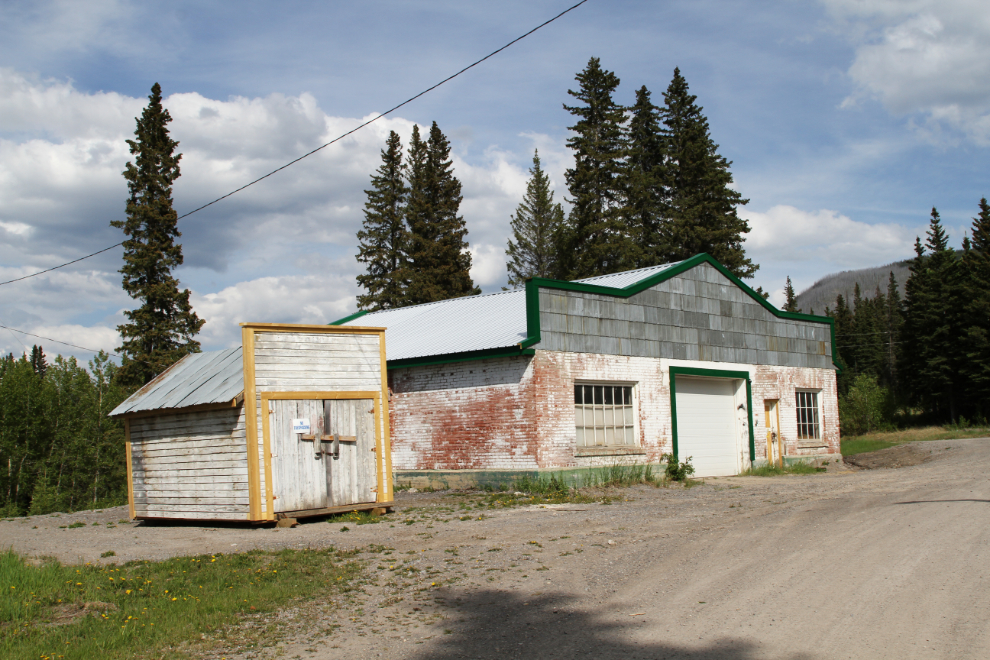
I just can’t go by cemeteries. From my brief look previously, I knew that this is one that I could spend a great deal of time in.
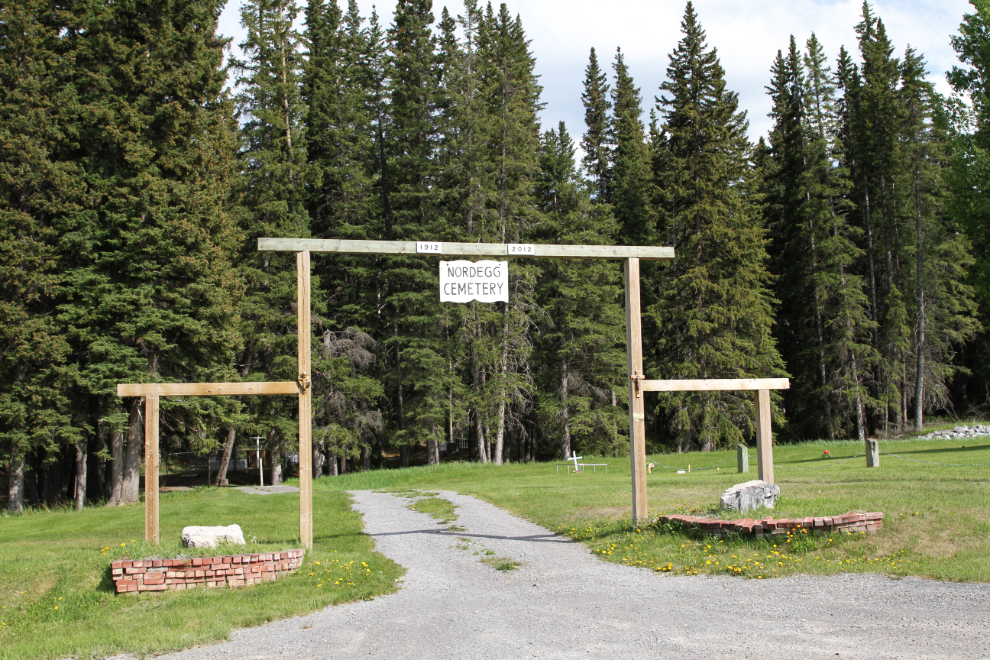
There are 250 graves at the cemetery, and they’ve been thoroughly documented by Maureen Klingenberg for Find A Grave.
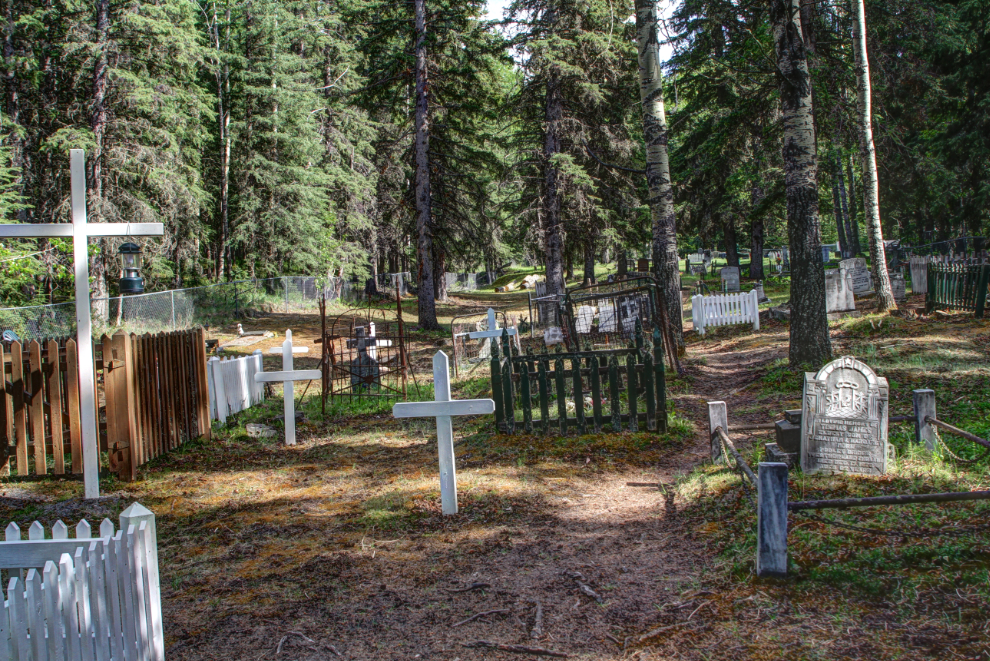
Some of the headstones are particularly beautiful, like this one for Thomas James, who was born in England and died at Nordegg in 1926 at the age of 62.
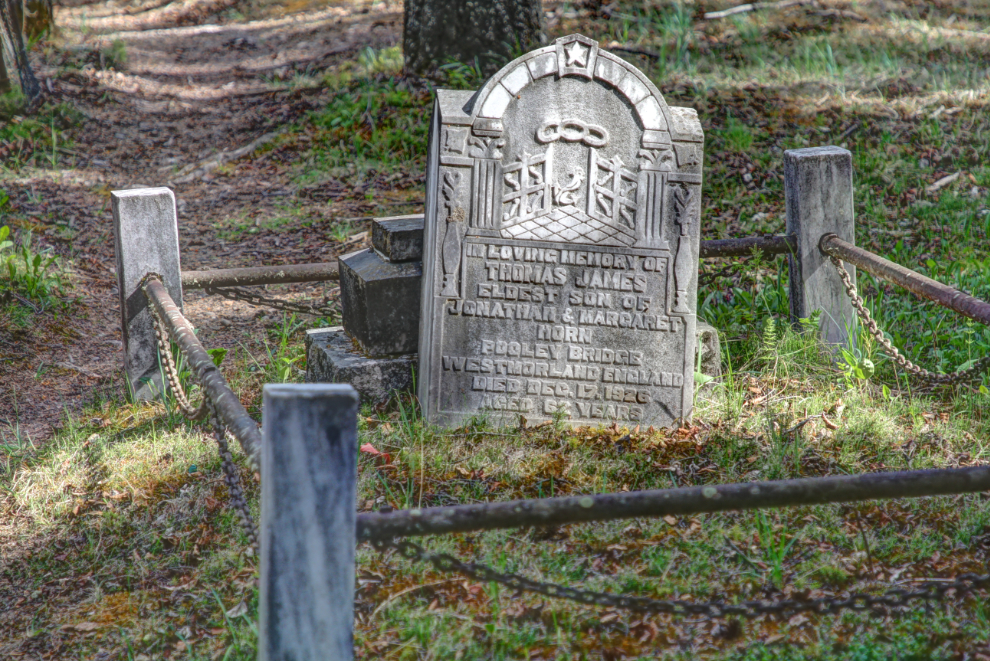
Trees almost always win the battle with concrete.
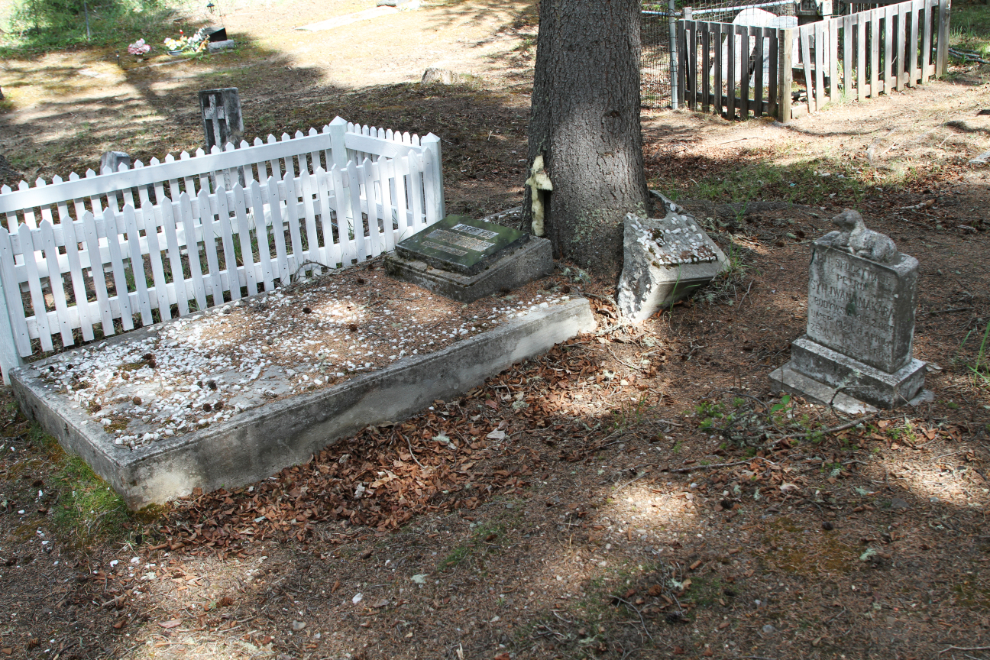
How sad to see such detailed woodwork falling apart on a headboard.
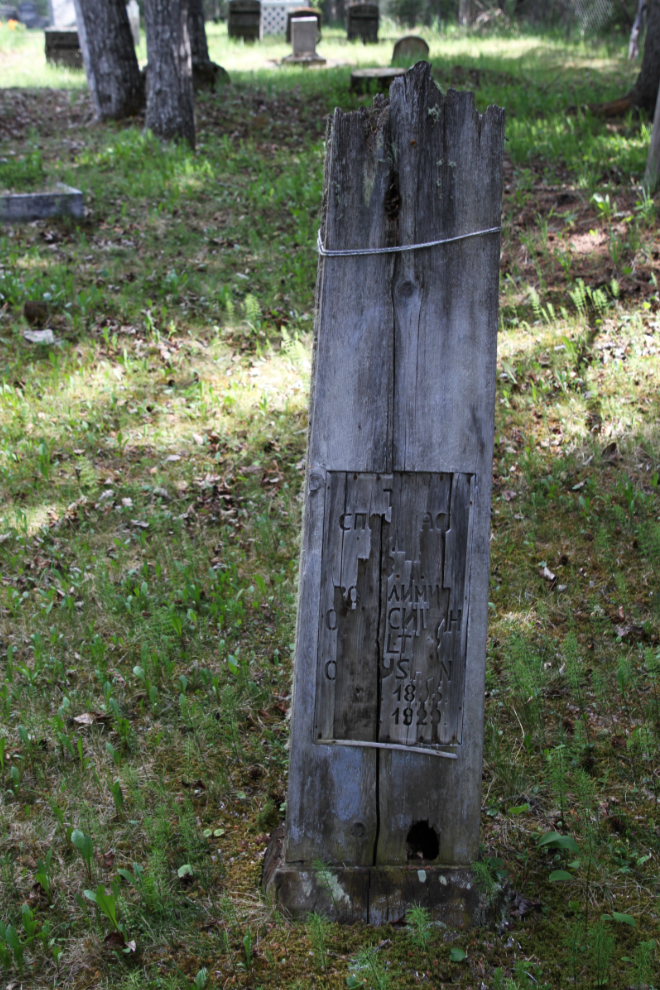
I then went in search of a parking spot for a couple of nights, ending up at the Abraham Lake Viewpoint, described in my last post. I returned on Saturday morning for the mine tour.
The tours, which are now operated by Clearwater County, start at the Nordegg Heritage Centre, which is in a building constructed in 1945 as the Nordegg School after the original schoolhouse burned down.
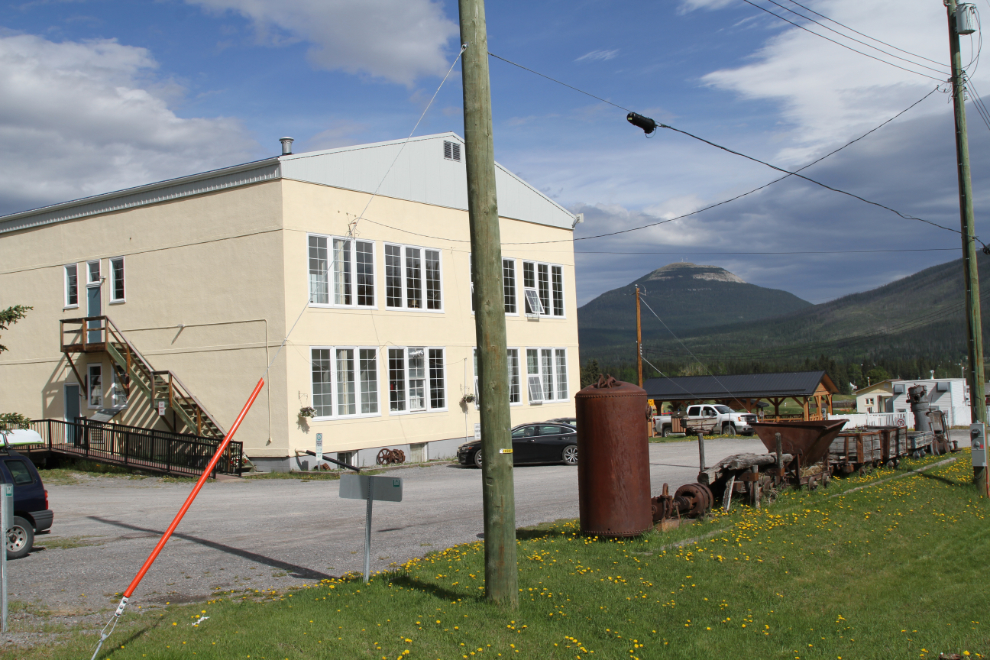
You drive yourself to the start of the tour at the colliery. The road goes under a railway trestle that only has 12′ 3″ clearance – if you have a motohome that’s higher than that, there’s a road around it.
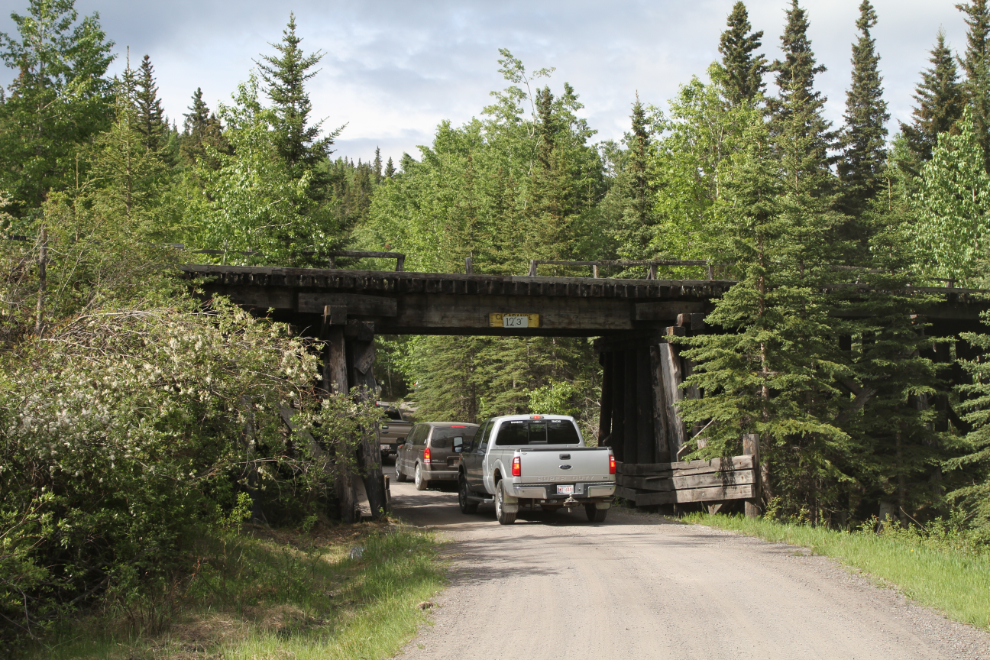
Vandalism has been a big problem at the Brazeau Collieries site, which is now fenced and well-marked as a National Historic Site so charges are easier to lay against the vandals. Tours used to be self-guided, but now access is only available on guided tours.
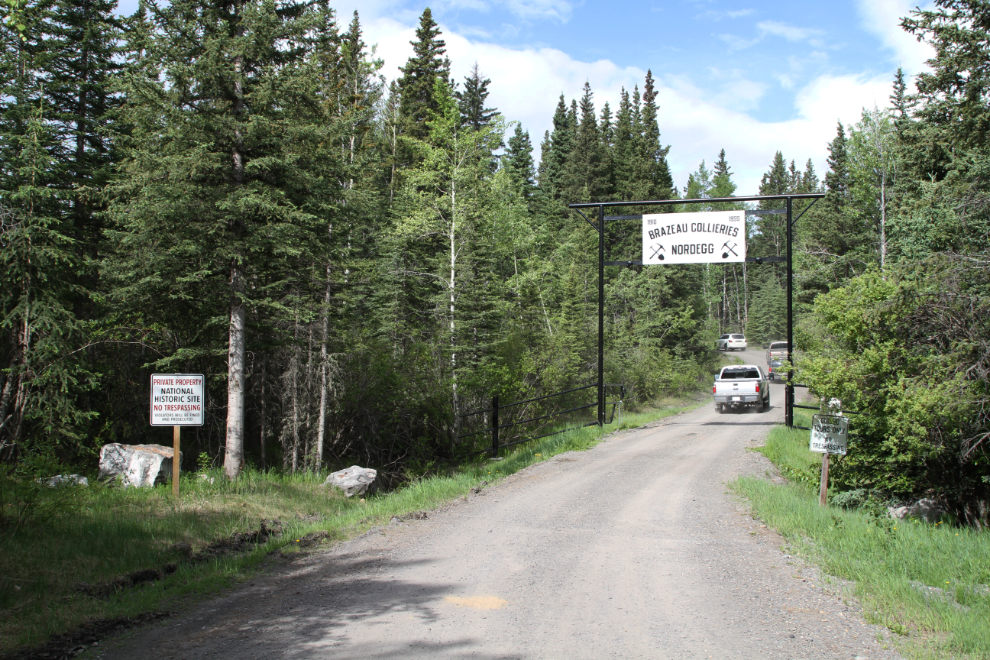
Jessie, our guide, began the tour right at 10:30. There were 13 of us, including 4 kids. Tourist season has barely begun, and everyone except me was from Alberta.
Edit: I mentioned above that vandalism has been a big problem at the site – in February 2024 the memorial plaque seen in the photo below was pried off the rock and stolen. That sort of thing is hugely discouraging for people who respect these sites and the people they honour 
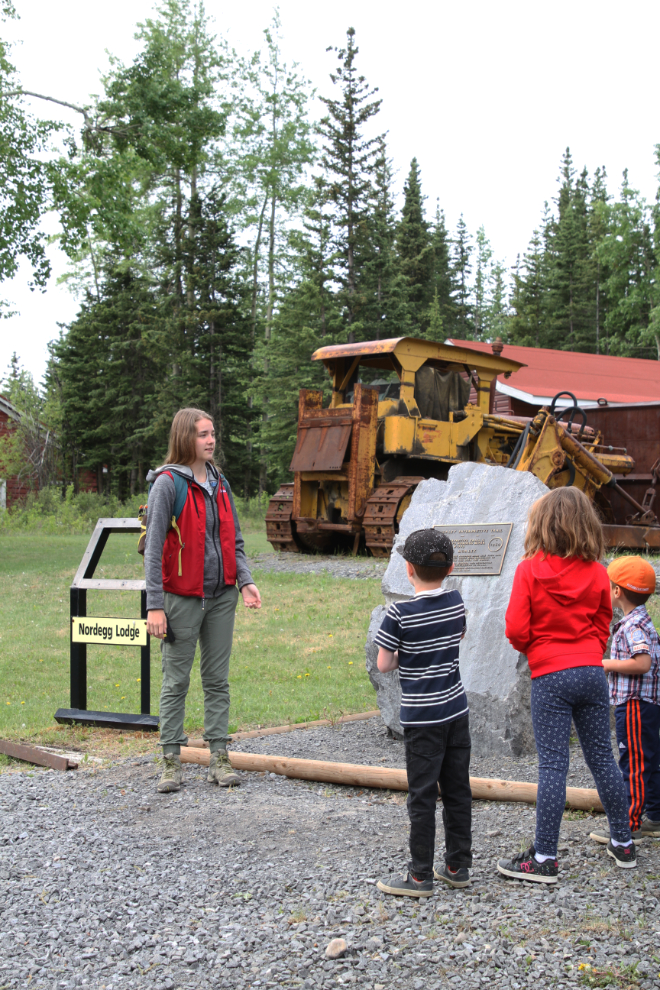
A large group of kids was on a special tour a few minutes ahead of us – they can be seen at the steam plant in the next photo.
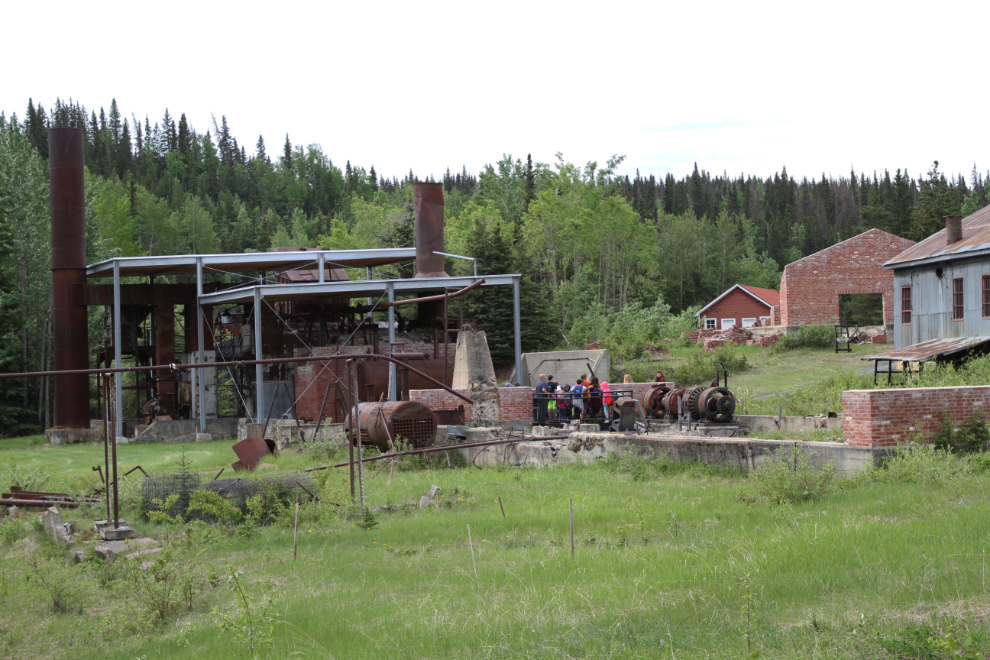
We began where the miners would have, at the locker and shower rooms. Many of the artifacts such as the lockers were tossed outside when the colliery became a minimum-security prison in the 1960s.
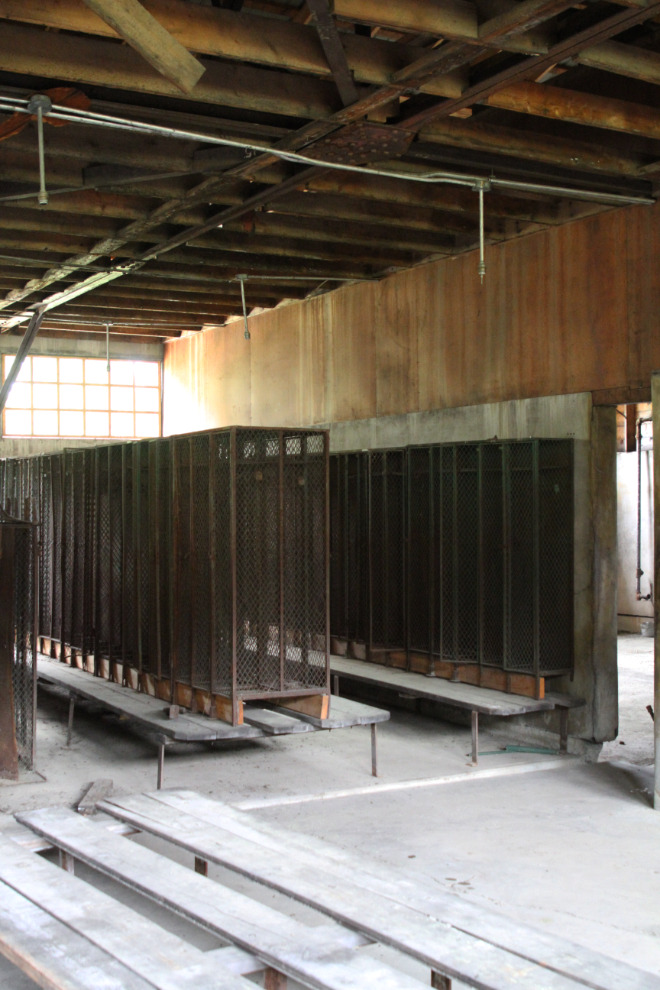
The shower room is being used to store spare parts. The next photo looks like it was shot as a black-and-white, but it’s actual colour.
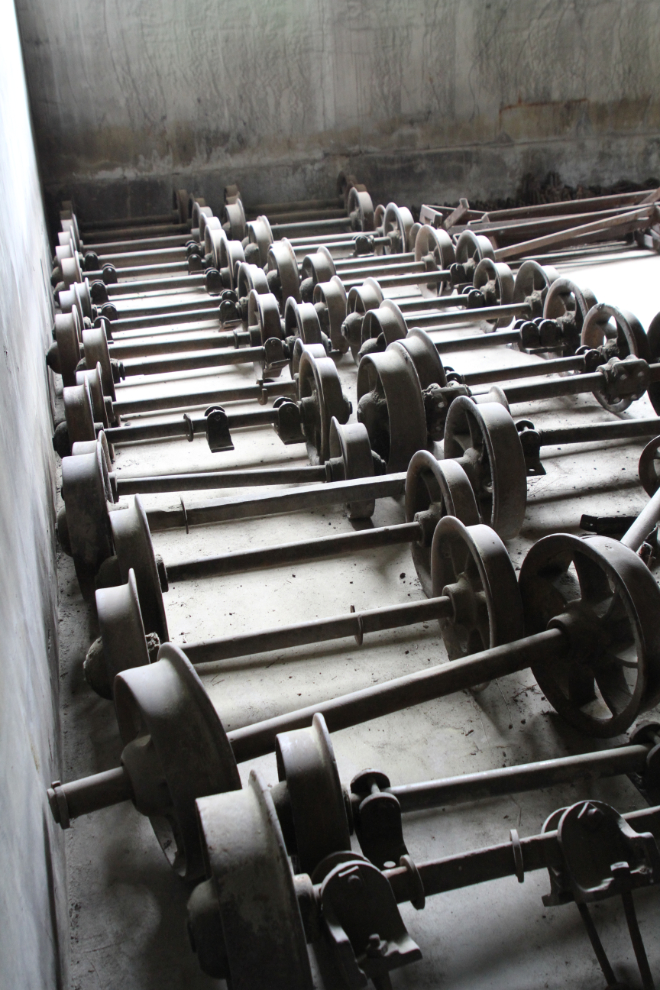
These cars were a couple of hundred feet off the tour route, so I didn’t get a good look at them.
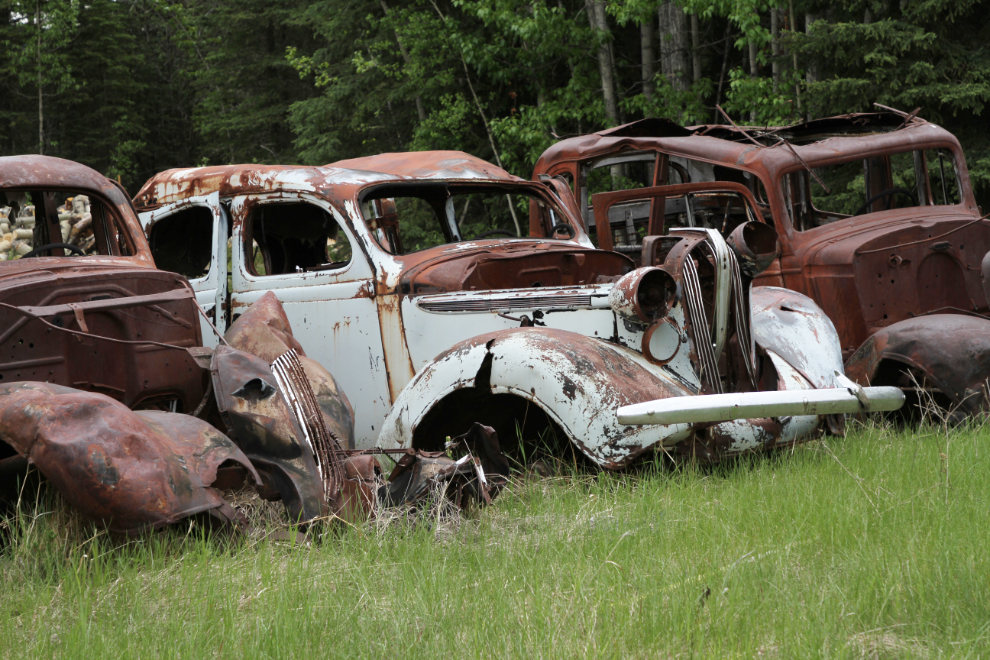
Walking to the next stop, the steam and power plants. In the distance to the right of the power plant is a wall of the train shop.
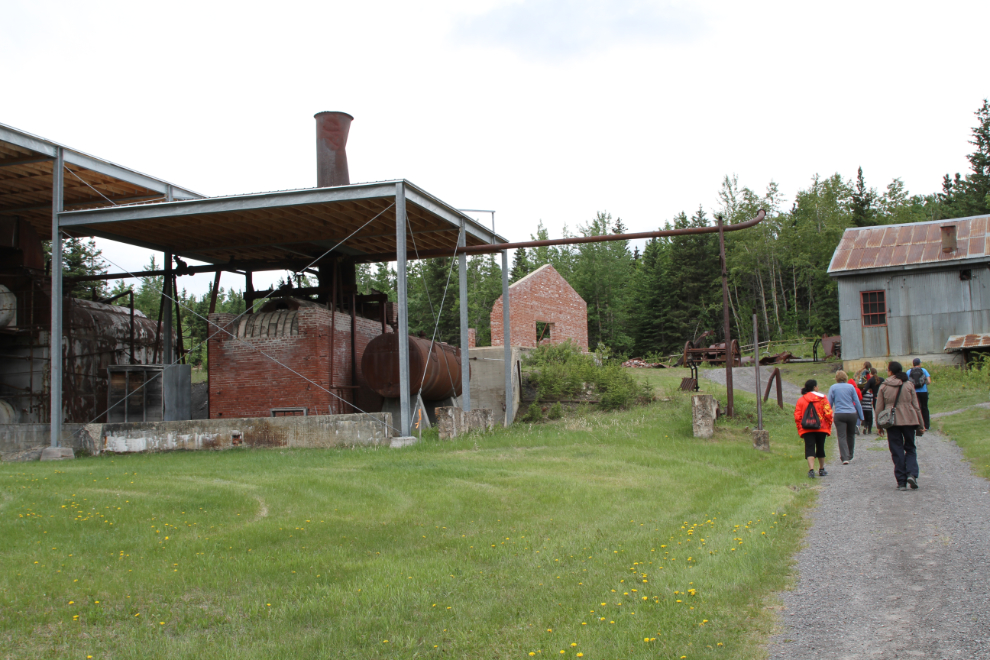
When the site was a prison, inmates were paid to tear down the brick buildings so the bricks could be sold. Most of the bricks remaining are ACP, but I saw 3 other brands as well.
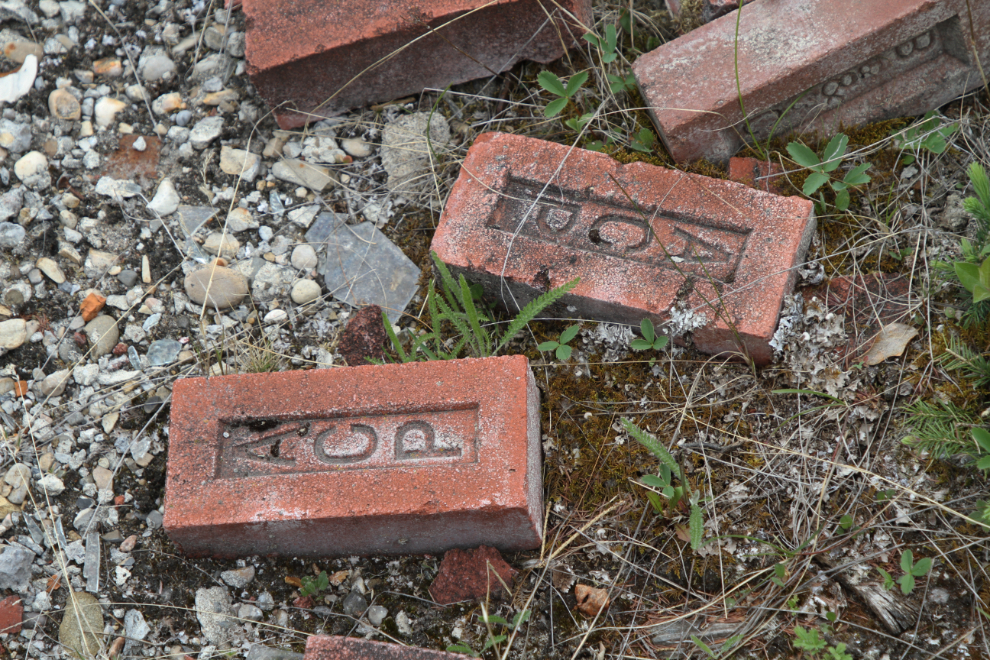
The ruins of the power plant. The two partial brick walls at the far end were reconstructed to better define the building’s size. One wall of the train shop has also been rebuilt.
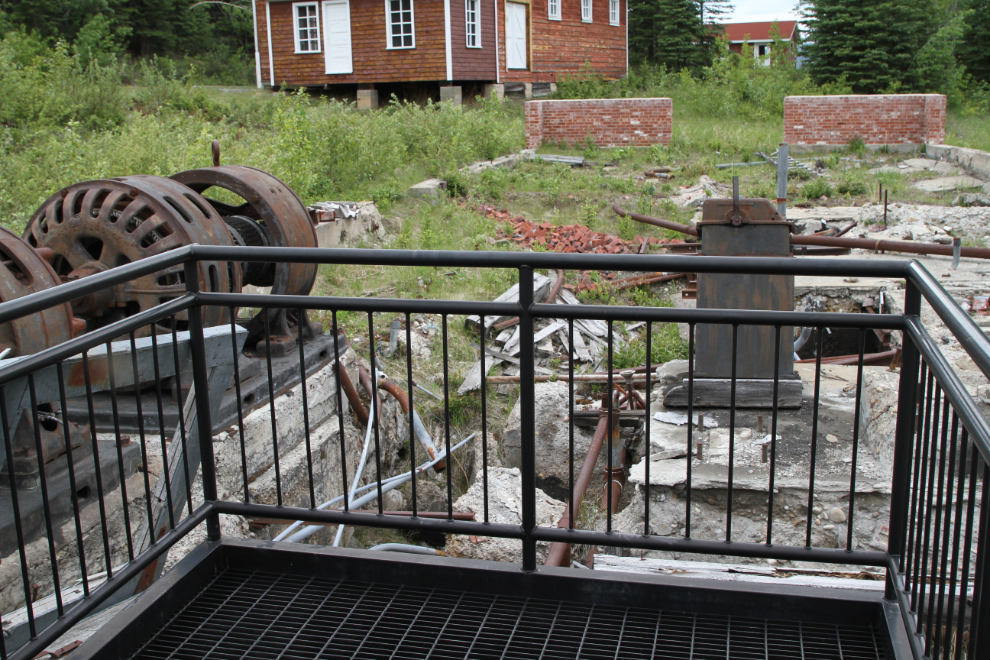
A closer look at the steam plant, one of the parts of the operation that I’d like to have heard more about.
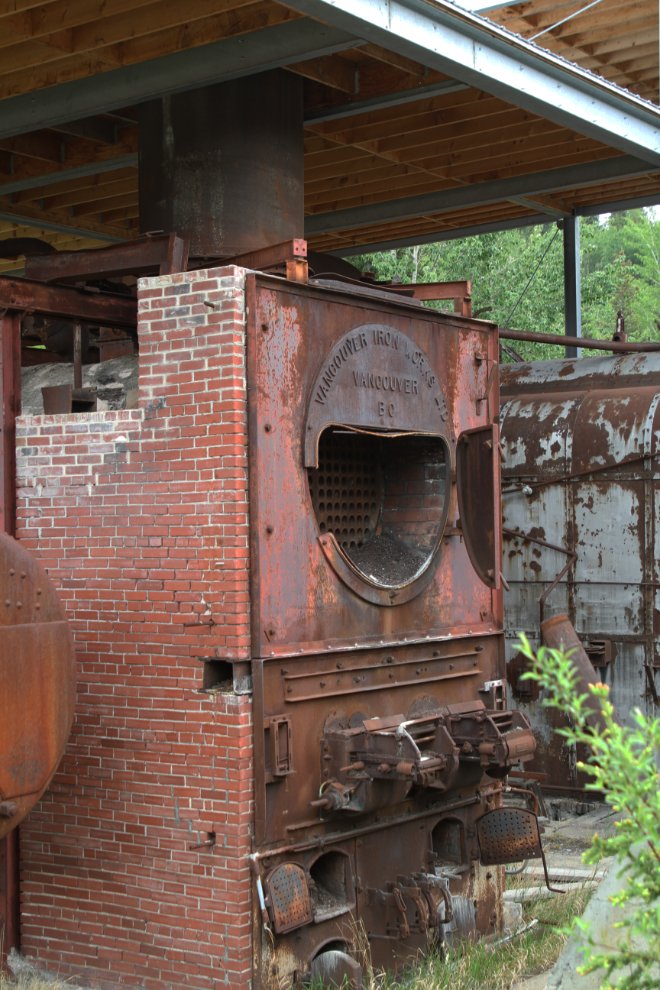
The ruins of the train shop. The colliery and the community were fully self-sufficient, from blacksmiths and a vet for the horses at the mine to a very good hospital in town.
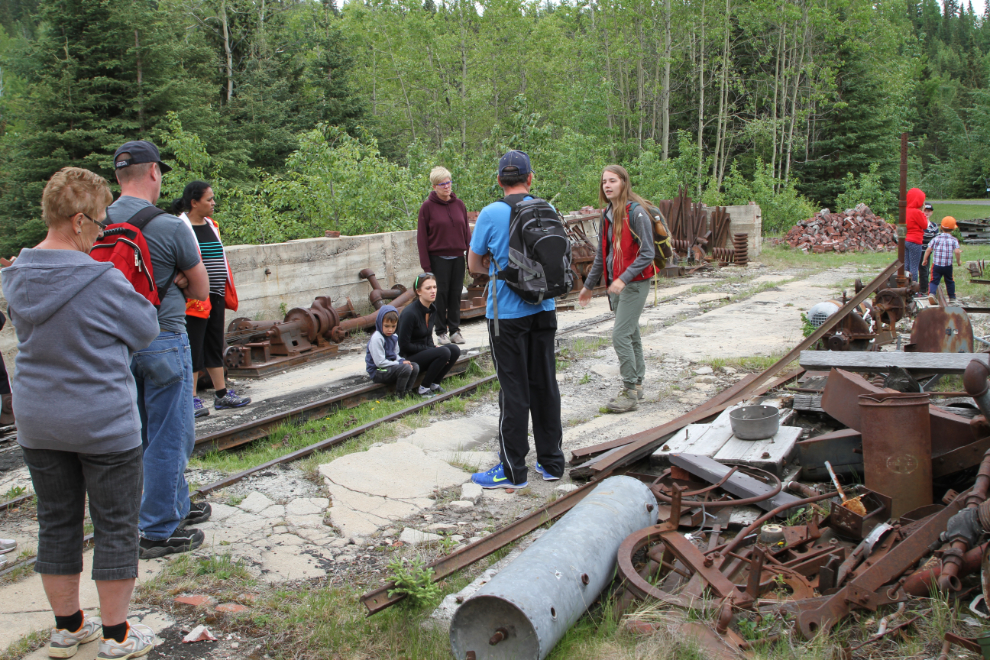
There is some wonderful equipment in a large field of rusty metal, including this ore cart dumper. Jessie gave us a few minutes to explore through it.
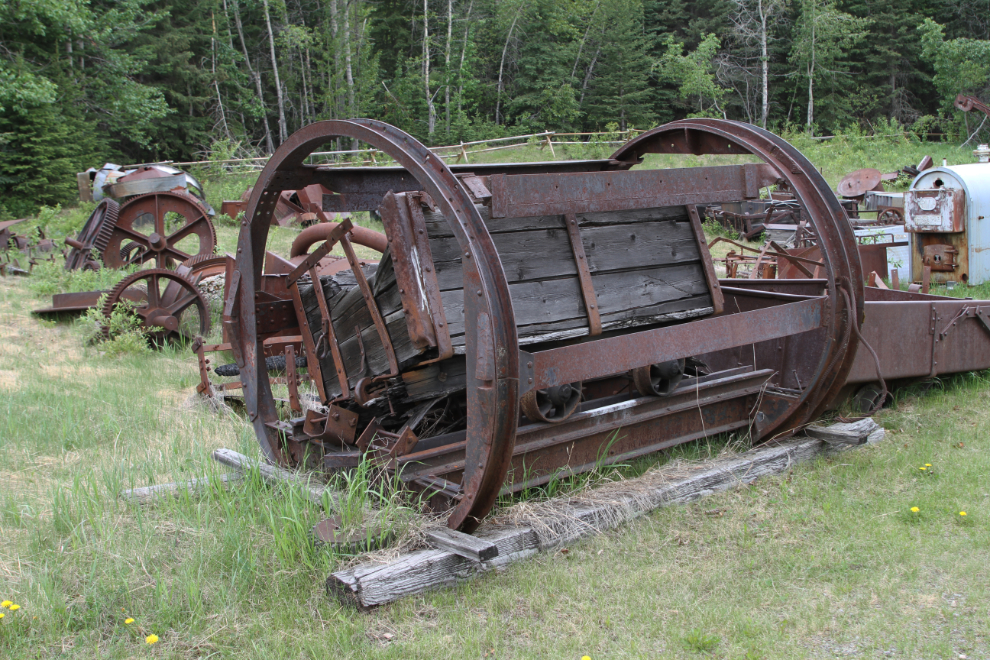
There is a vast network of tunnels (hundreds of miles, I expect), with three openings. Nordegg No. 1 was unsuccessful, but both Nordegg No. 2 and Nordegg No. 3 shipped large amounts of coal.
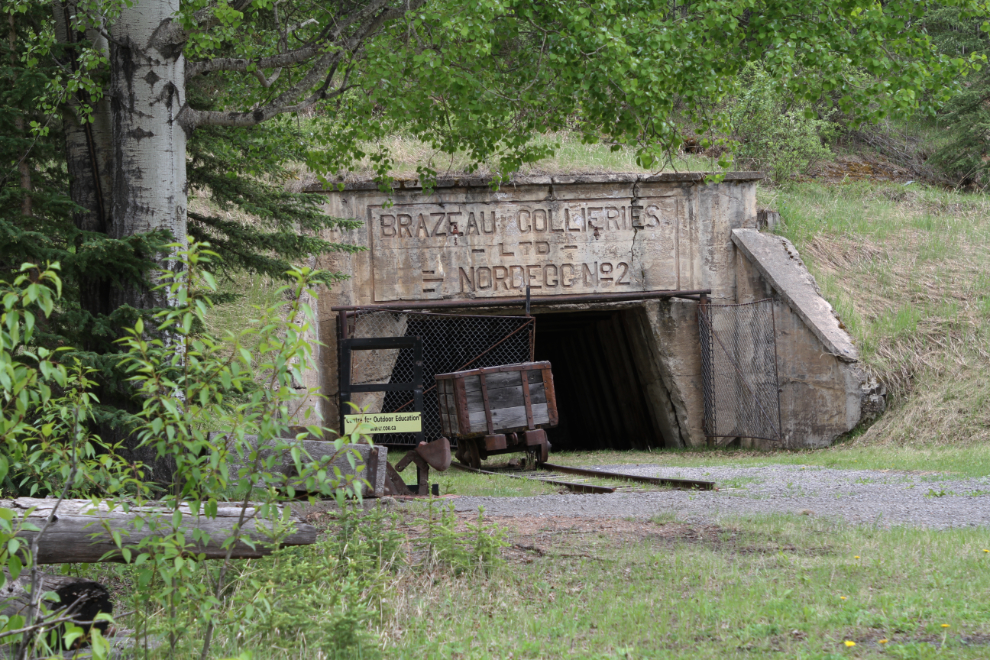
One of the ventilation fan houses. This one is unsafe to go into.
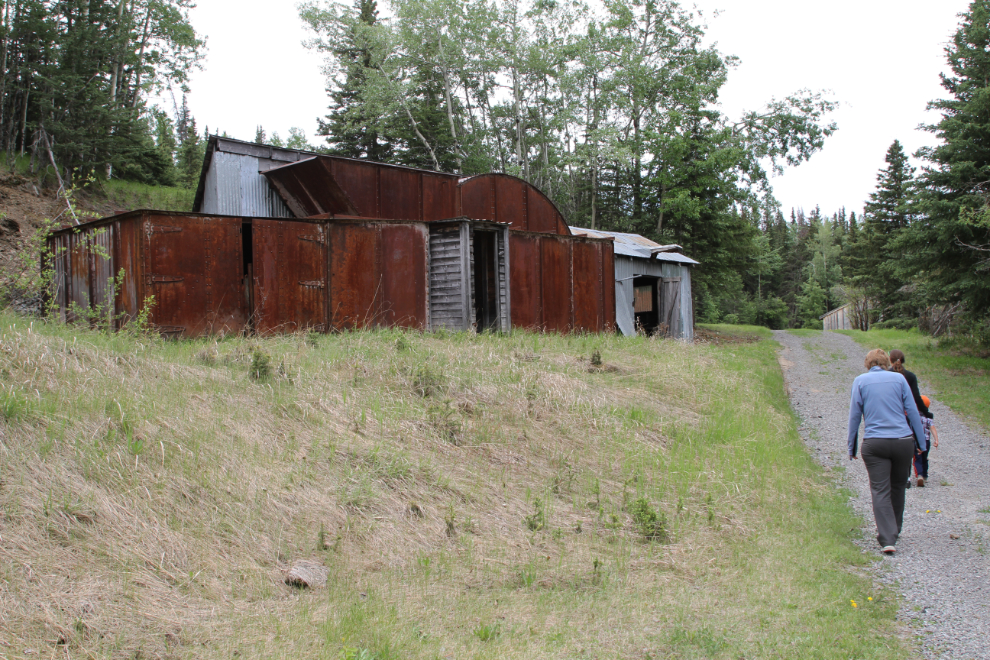
The Nordegg No. 3 entrance.
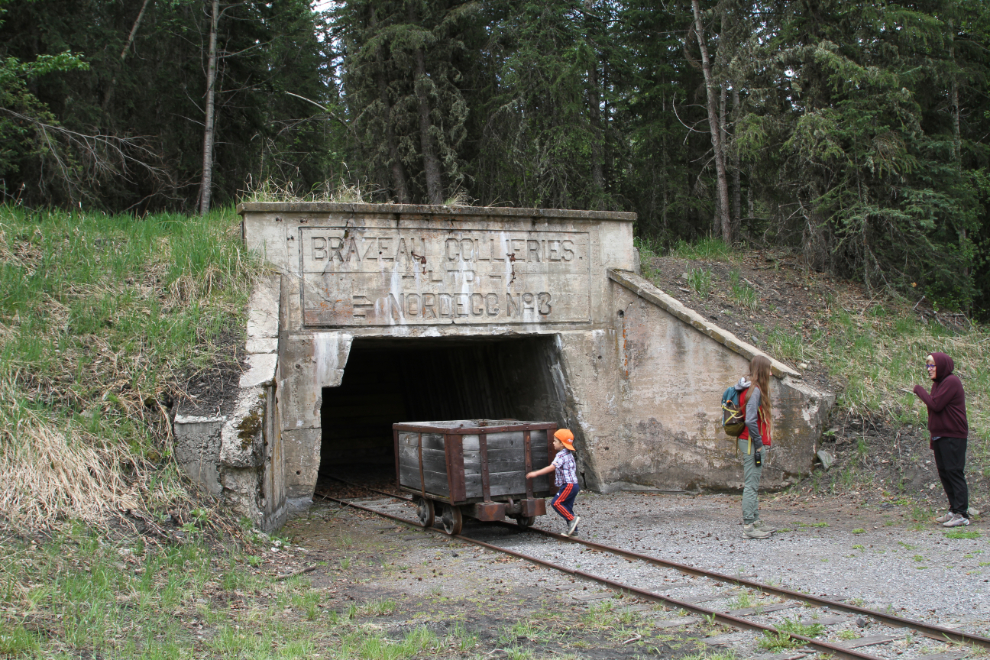
This ventilation fan house for Nordegg No. 3 was safe to go into. In the lower center of the next photo is a grate that is an opening into a tunnel. The air rushing out of it is so cold that there’s a ring of ice around the opening. I was able to turn the large (almost 7 foot) fan in the building quite easily, after not being used for 60-odd years.
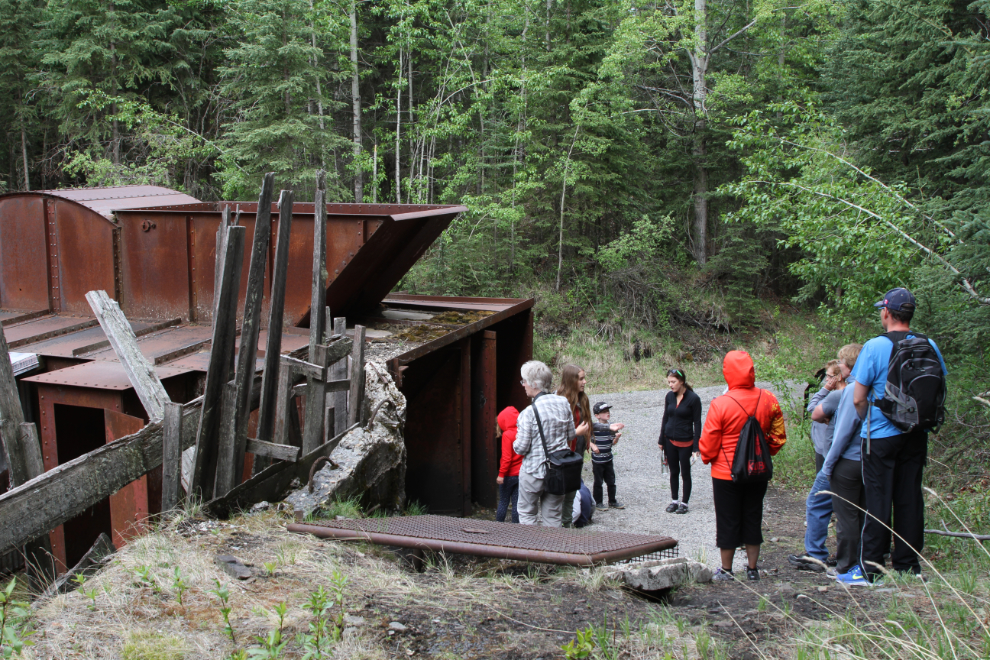
Failing concrete is one of the biggest problems at the site. Jessie said that they made their own concrete but weren’t very good at it. The wall is the next photo seems to verify that.
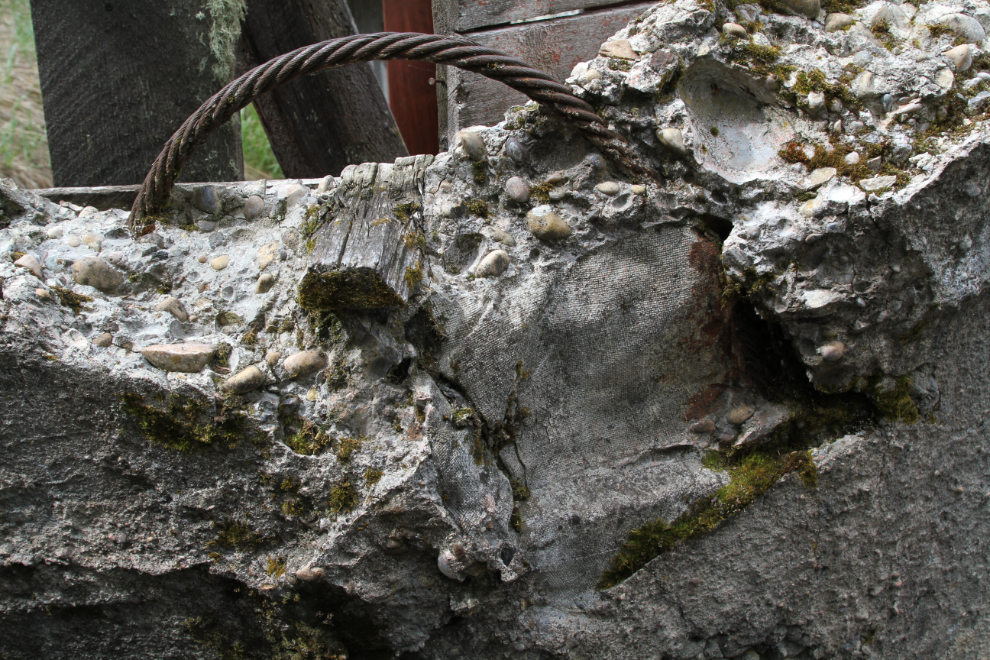
This is the powder house, far away from any other buildings. Brazeau Collieries was apparently the first of the mines to quit using dynamite.
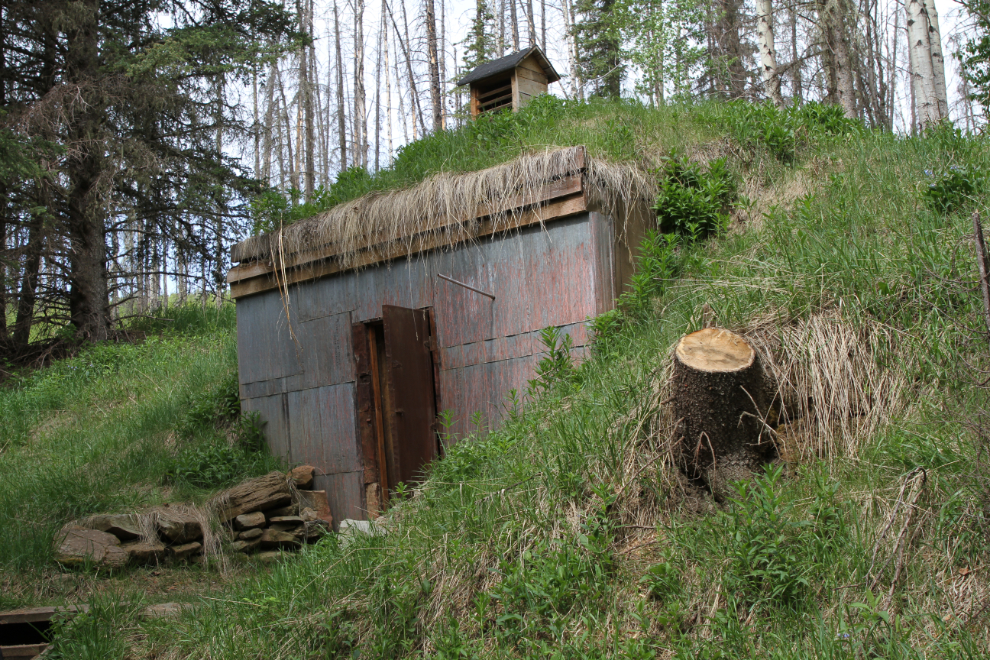
Back at the field of equipment, I believe this rig chewed into the coal face.
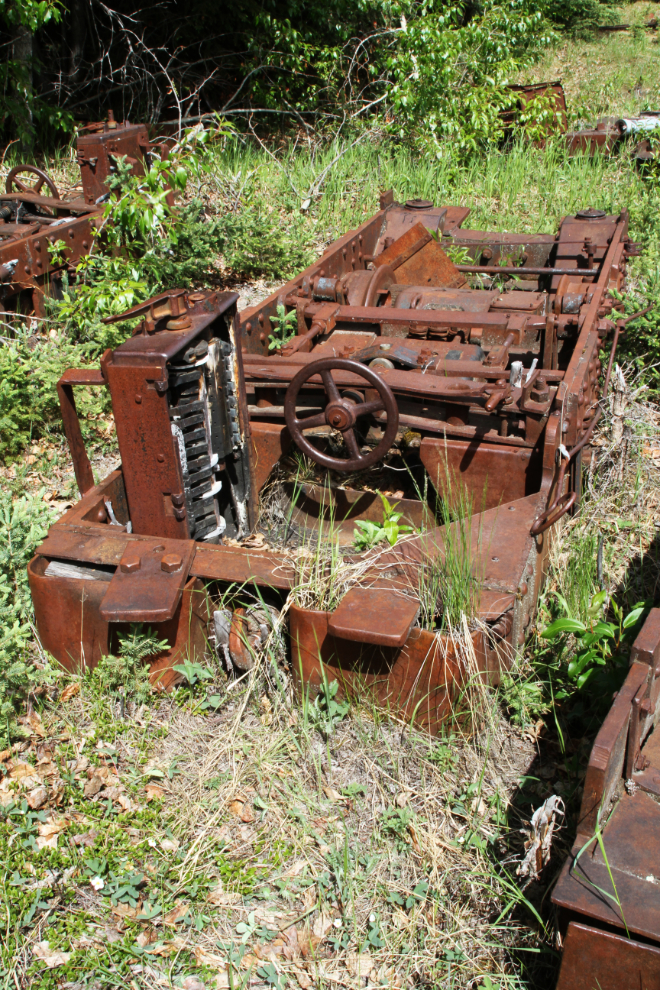
This is the most interesting brick I found and I thought that “Mexico Crown…” might make finding it online fairly easy, but Google came up with no information about it.
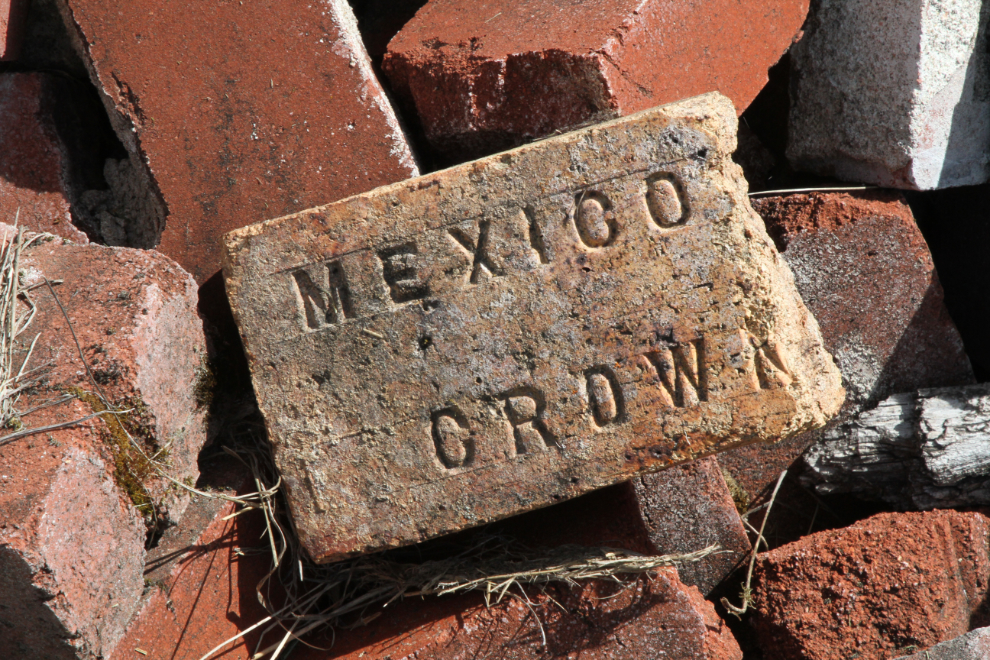
The machine shop is one of the most intact buildings on the site. The hearth is seen in the next photo.
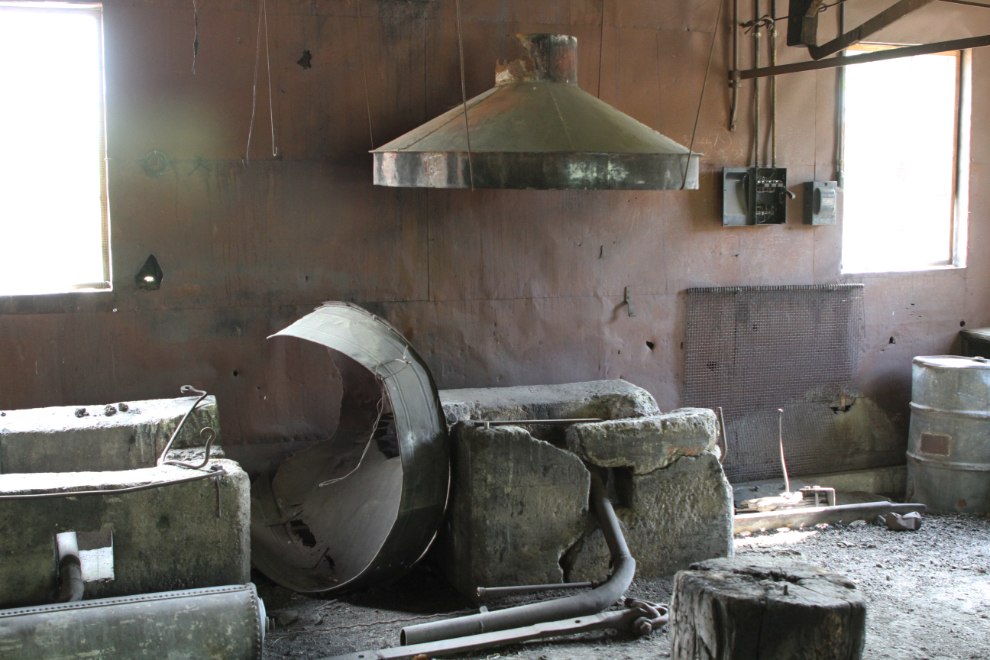
I don’t know what this small cart would have been used for. Perhaps it’s from the briquet plant, which is closed for repairs.
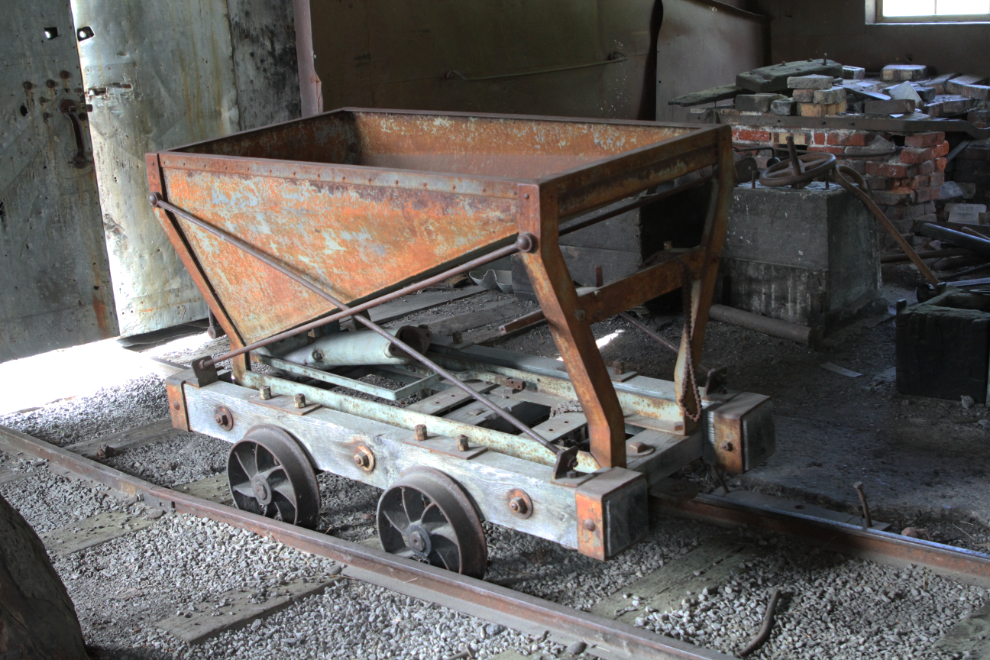
These machine drive systems fascinate me. The pulleys were connected to various machines by belts, and the size of the pulley determined the speed at which each machine would operate at.
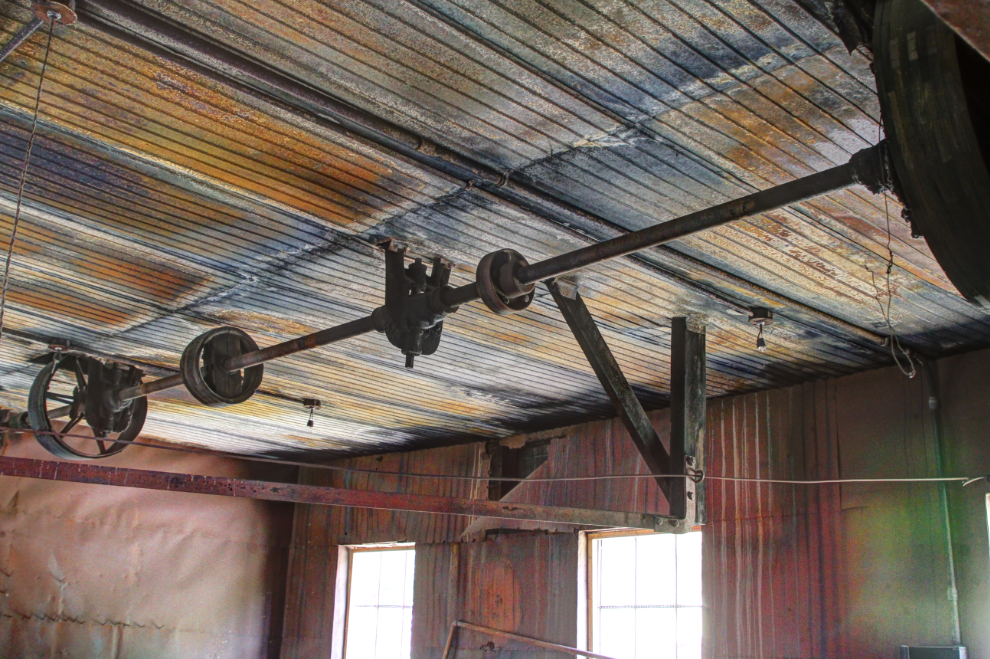
The colours at Brazeau Collieries aren’t entirely concrete and rust
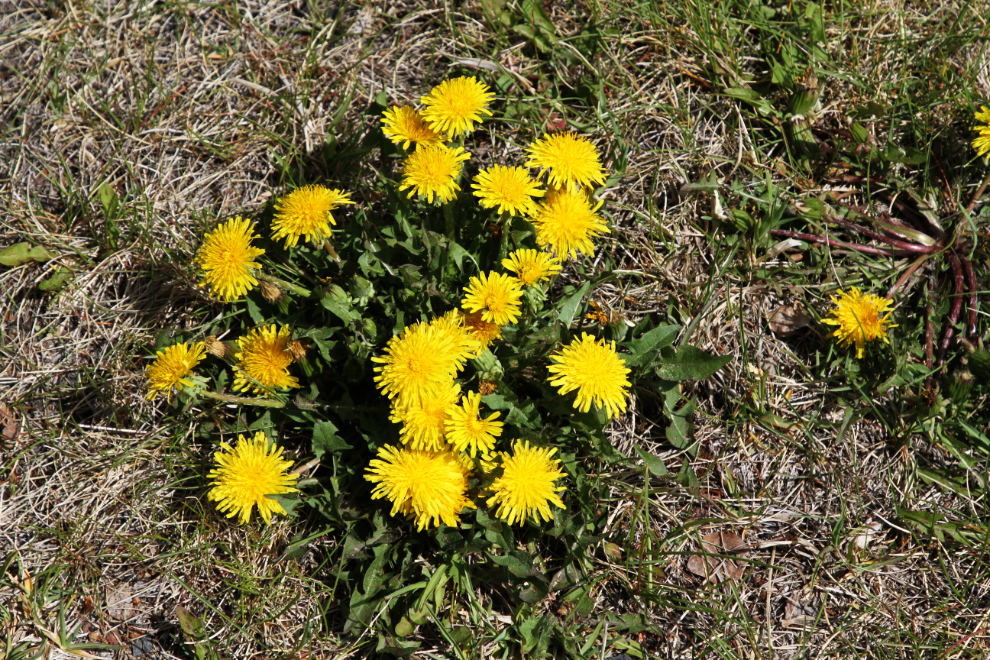
The parts warehouse would have been a busy place back in the day.
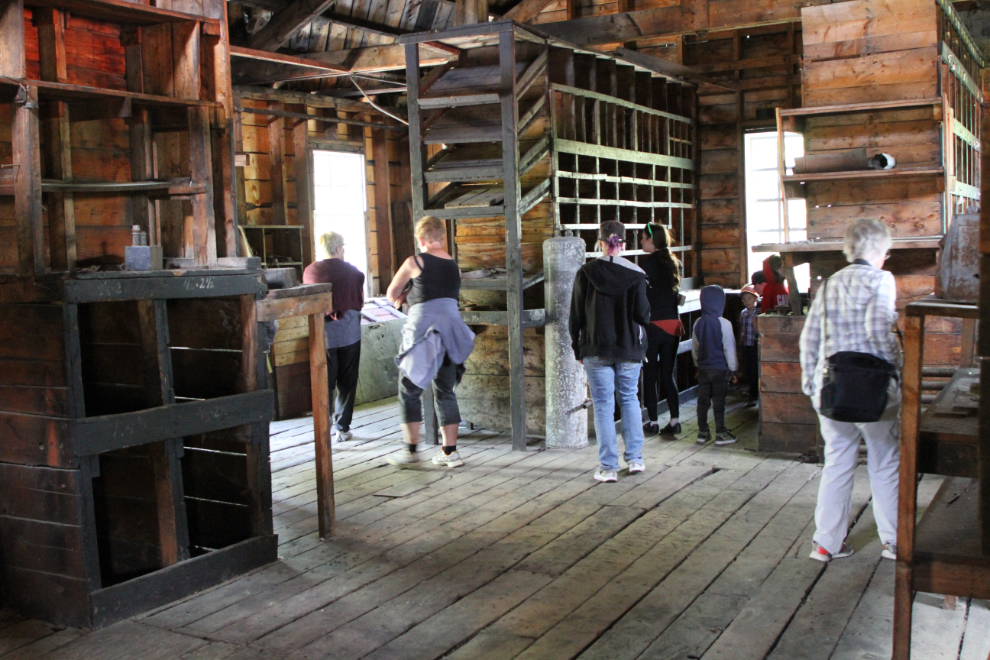
No information about this GMC truck’s use was available.
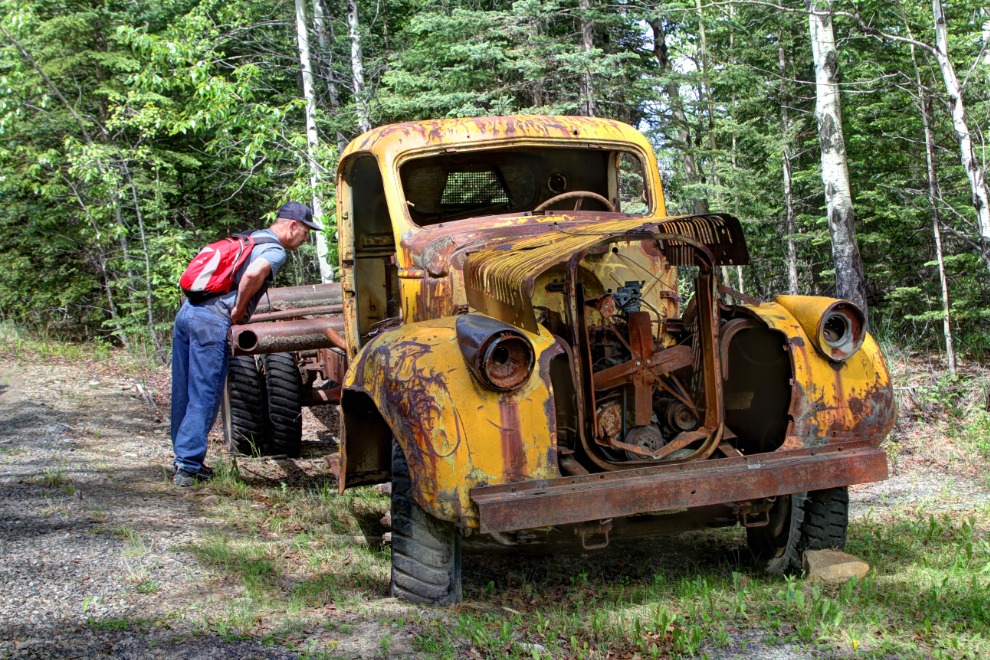
This reconstructed log cabin was the first building at the Nordegg mines in 1908. On the right-side wall you can still see the pink stain from fire retardant dropped by water bombers in 2013. A friend of mine in Whitehorse was one of the pilots working that fire.
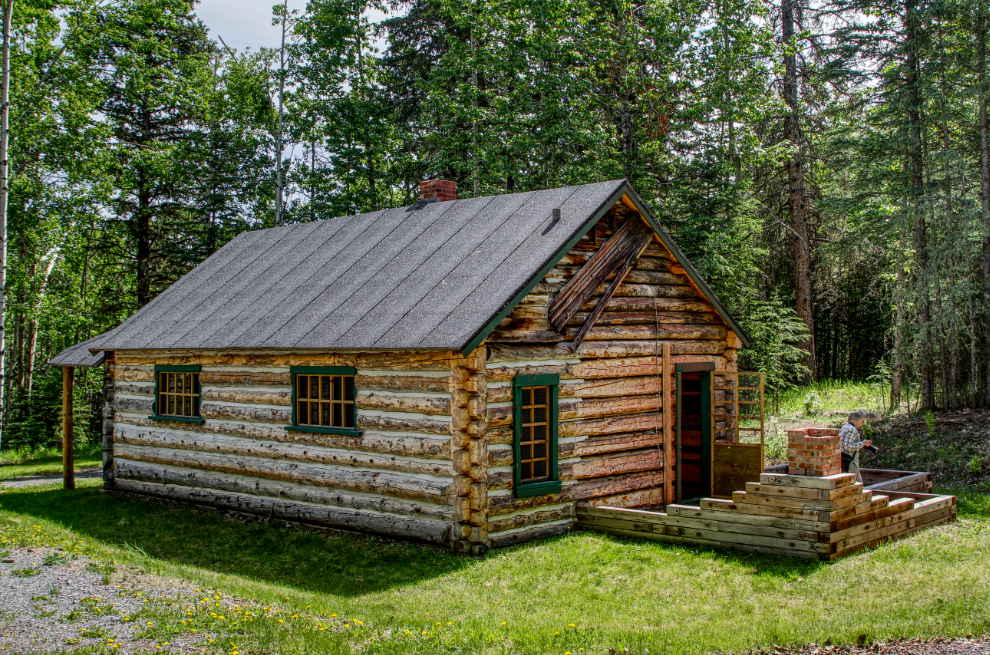
The interior of the cabin, which shows modifications made over a few decades of use.
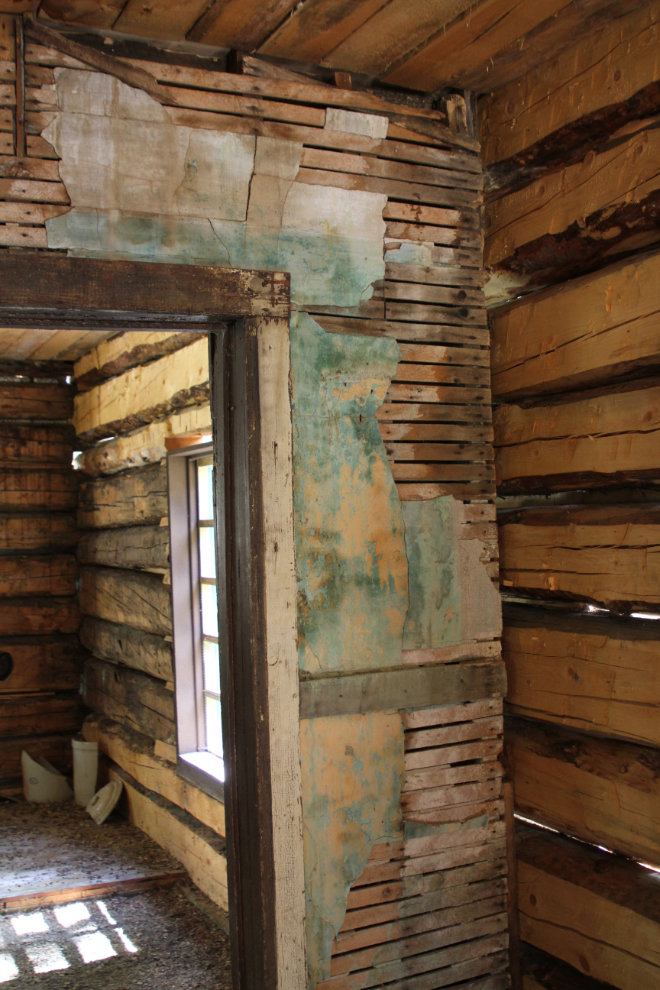
Houses like this were shipped in from Vancouver as kits – just nail the pieces together.
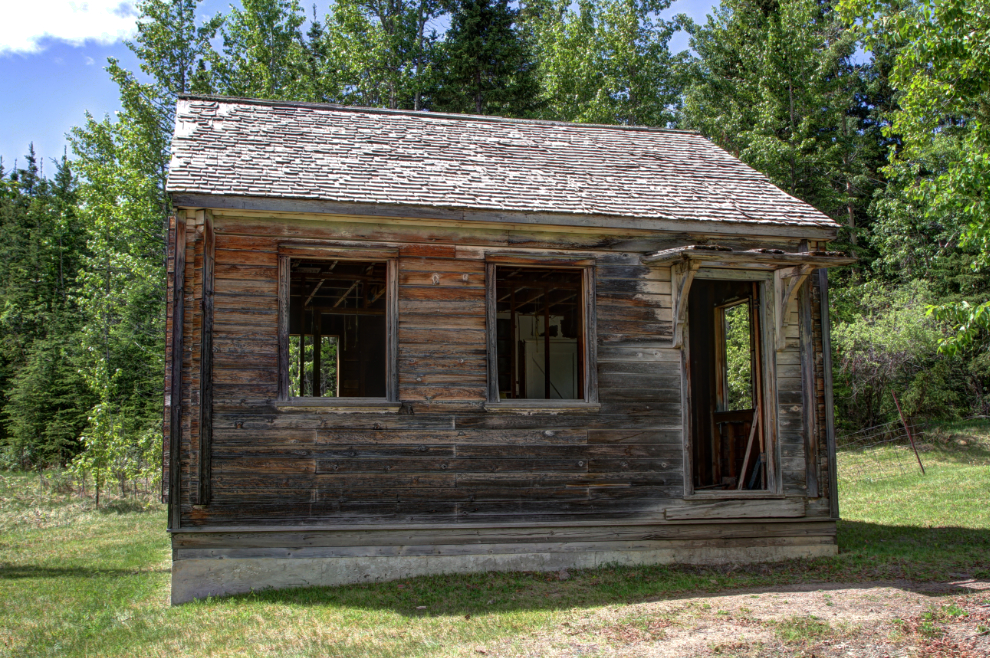
The corners on the kit homes are very interesting. Although they appear to be just decorative, perhaps there’s a structural reason for it.
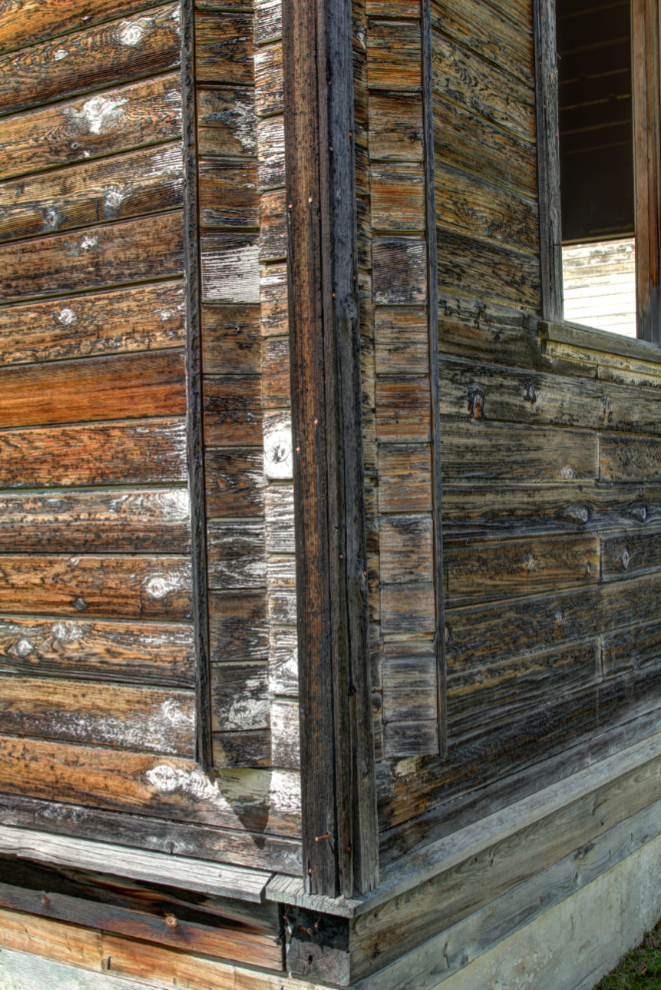
We had a brief look at the lower briquet plant from a viewpoint. The tours through it are expected to be back in operation by July.
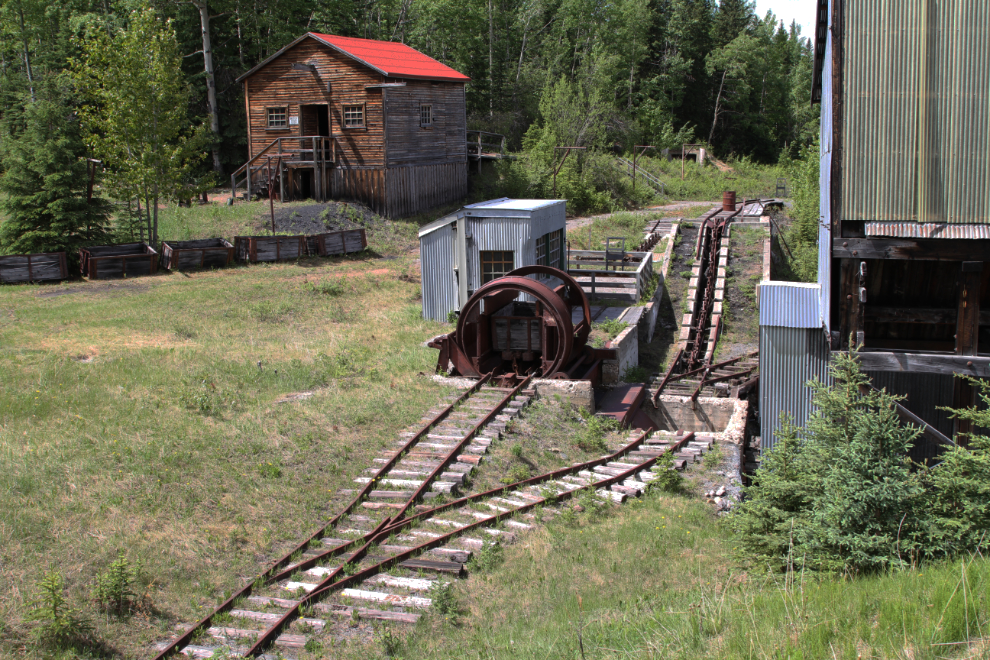
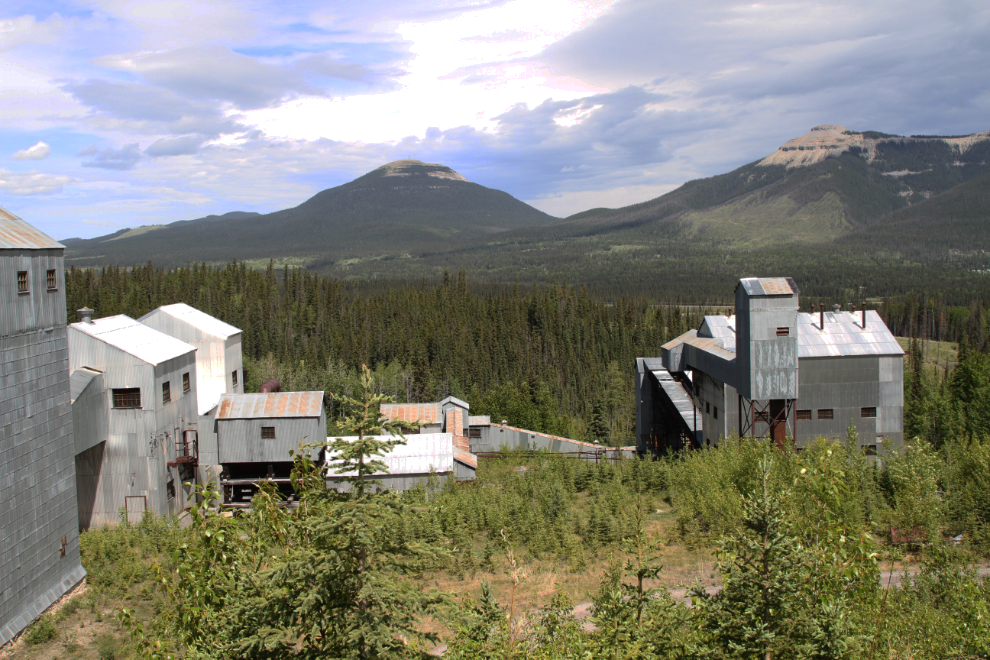
Our tour lasted almost 2 hours, and was certainly a good investment of time and $10. On the way back into Nordegg, I stopped and climbed up to the railway trestle for a look.
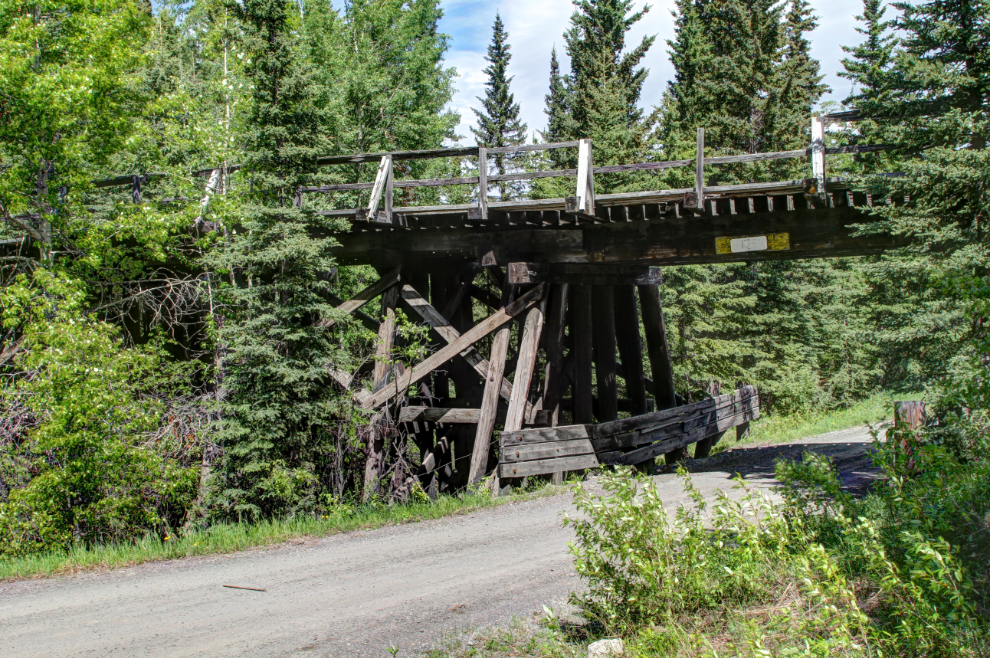
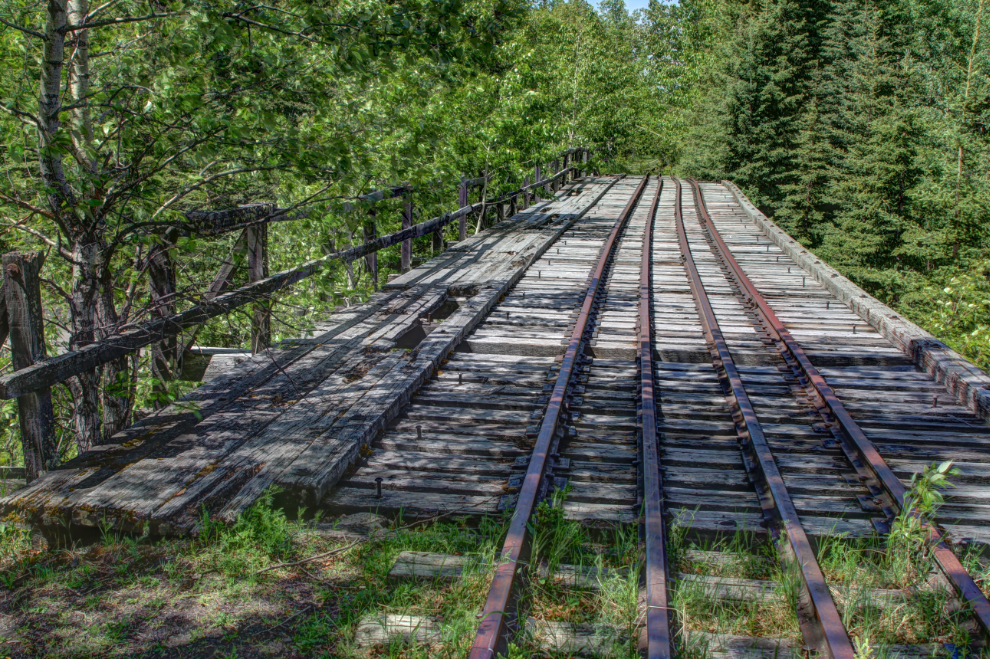
There are some very nice building lots for sale in the upper part of Nordegg, but there seems to be no interest. I should have taken the listing agent’s information – I’m curious what they’re asking. I found other lots ranging from about $80,000 to $150,000.
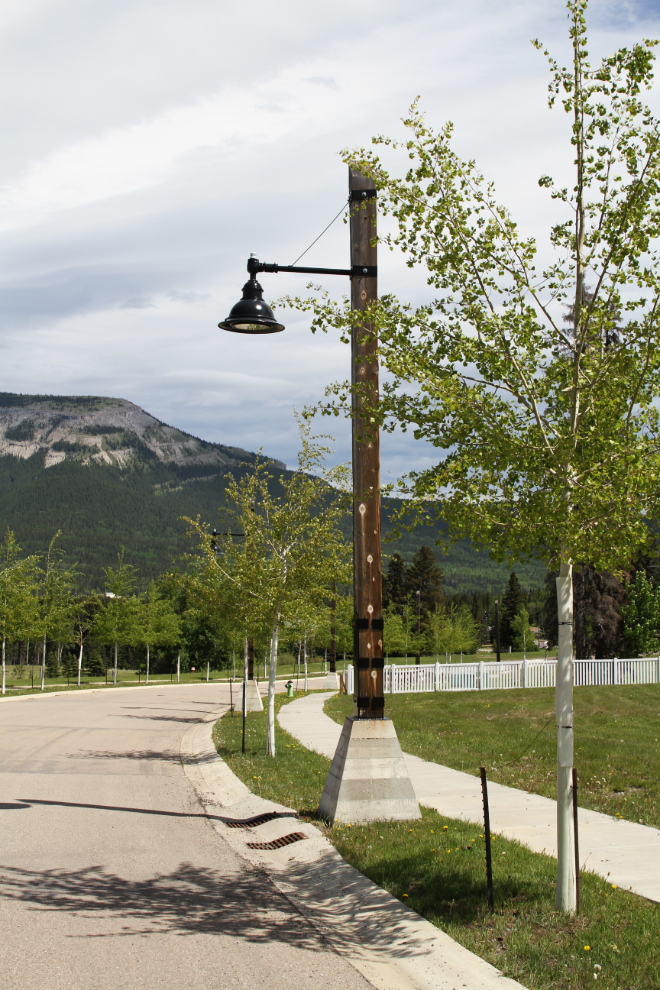
One final photo, of the Nordegg golf course.
